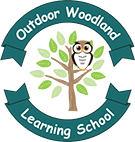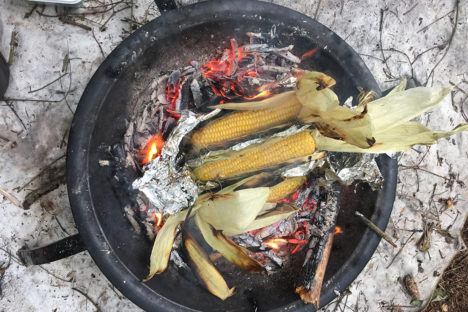
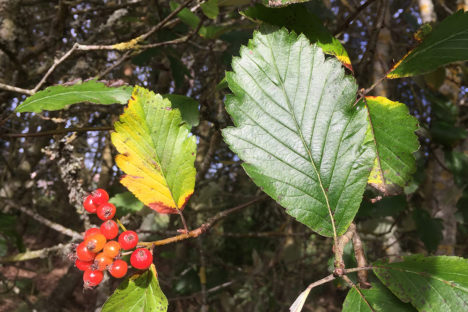
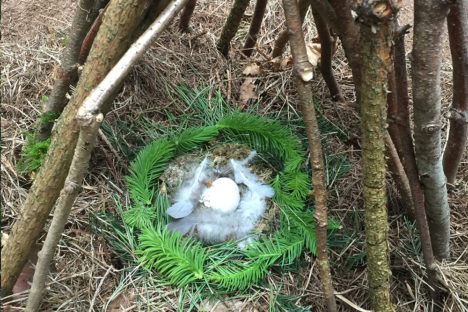
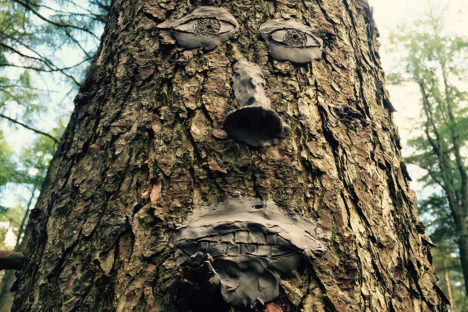
Health and Safety Policy
Outdoor Woodland Learning School CIC (OWLS) Health and Safety Policy is available for all to view. Additional employment policies are held on Onedrive.
‘Staff’ refers to all members of staff whether temporary or permanent.
Admissions
Both OWLS Club and Little OWLS is a provision for young people and it is not a childcare provision. Places are limited and are allocated on a booking service until maximum numbers are reached. All booking forms and payments must be received before confirmation of dates is allocated.
OWLS Club and Little OWLS are open to all young people. During Little OWLS the parent or carer must remain with the child and be responsible for their child.
Parties last for either two or three hours. At least one additional adult must remain with the party leader at all times. This adult is responsible for the behaviour of the participants and while the party leader provides the activities. The party leader retains the overall decision making responsibility.
Arrivals and Departures
All participants under the age of 18 years will only be allowed to attend OWLS when a signed, up-to-date consent form has been received from the parent or carer. A member of staff of OWLS will welcome the participant as they arrive on site and mark their arrival on a register. When a young person leaves OWLS Club, they will be handed over to their parent or carer with some simple verbal feedback about the session.
No young person will be allowed to make their own way home unless written consent is given by the parent/carer. Only the person indicated on the registration form will be allowed to collect the young person unless otherwise indicated by the responsible adult for that young person.
Behaviour Management
OWLS believes that all participants should be valued and that they should understand what is expected of them and what they can expect from others. That is why a framework of routines and boundaries of behaviour are defined.
The ground rules will apply equally to all adults, members of staff and participants of OWLS sessions. OWLS will demonstrate positive role modelling by dealing with situations in a clear, calm, polite and positive manner. Positive behaviour will be reinforced with appropriate praise, encouragement and risk assessment by enabling the participant to recognise their positive contribution.
It is the responsibility of OWLS staff to anticipate and avoid problematic situations by ensuring the participants do not become bored. Staff should not allow situations to ‘drift’. It must be made clear that it is certain behaviours and not the participant that are unacceptable. OWLS will follow a set of strategies for dealing with unacceptable behaviour. These strategies will be implemented by all members of OWLS staff. OWLS staff will avoid shouting.
OWLS staff will mediate between children to try and resolve conflicts through negotiation and discussion. Behaviours that are unacceptable will be challenged in a calm and assertive manner. In the event that unacceptable behaviour persists, a more serious action may be deemed necessary in accordance with the exclusion policy.
Physical restraint will only ever be used as a last resort when every other measure has failed and there is a serious risk to self, others or serious damage to property. Certain incidences and persistent occurrences of unacceptable behaviour will be recorded on incident forms.
Bullying
Bullying is repeated incidences of harassment of others through emotional, verbal, physical and psychological abuse. Everyone involved with OWLS will be made aware that bullying will not be tolerated and will be challenged. Any individual who has been the victim of bullying will be supported by OWLS staff. They will be closely supervised and regular checks will be made on their welfare. Bullying will be dealt with according to the behaviour management policy and an incident form will be completed. Where necessary, OWLS staff will inform parents in order to support the young person.
At all times they will aim to handle the situation with care and sensitivity. All incidents of bullying, of either children or adults, will be recorded on an incident form. If bullying behaviour persists, then action in accordance with the exclusion policy may be taken.
Child Safeguarding
OWLS aims to ensure that all children are protected and kept safe from harm while they are with staff or volunteers in this organisation. In order to achieve this we will ensure our staff and volunteers are carefully selected, screened, trained and supervised.
Screening
Any new employee, freelance or permanent completes a PVG Disclosure Record (relevant to the position applied for) prior to the applicant taking up the post.
The successful applicant will receive induction training, which will give an overview of the organisation and ensure they know its purpose, values, services and structure. Relevant training and support will be provided on an on-going basis and will cover information about their role, and opportunities for practising skills needed for work.
Training on specific areas such as health and safety procedures, identifying and reporting abuse, and confidentiality will be given as a priority to new staff and volunteers and will be regularly reviewed.
It is an offence for an individual who is barred to undertake the type of regulated work from which they are barred. It is an offence for an organisation to offer regulated work to someone who is barred or fail to remove a person from regulated work if they have been notified that they are barred. It is an offence for an organisation not to refer an individual to Disclosure Scotland where the grounds have been met.
Reporting Abuse
Outdoor Woodland Learning School CIC understands that in addition to making a referral (a written report) to Disclosure Scotland, Child Protection issues concerning workers (paid/unpaid), children and young people must always be referred to the child protection agencies (ie social work and/or police) for appropriate investigation.
Outdoor Woodland Learning School CIC will ensure that all staff and volunteers involved in recruitment, training and supervision, are aware of this policy and have received appropriate training and support to ensure its full implementation.
If you have concerns: Speak to Pip or Heidi who will speak to parents/social services/police as required.
Tel: 07585 743 739 or go directly to social services if you have concerns about a senior member of staff.
If a child reports abuse and is in possible danger from further physical or sexual abuse: Allow the child to speak, state that you will need to report all they say but they will be supported.
- Listen and try not to interrupt.
- Only ask questions to clarify what the child is saying.
- Only seek further information from the child if necessary.
- Ask open questions (such as ‘tell me what happened’). Never suggest an answer to a child.
- Do not promise to keep what they have told you a secret – you have to tell someone.
- Answer any questions honestly. If you do not know the answer, say so and tell the child that you will find out.
- When you do find out the answer, go back and tell them. Keep them informed.
- Reassure the child that they have done the right thing in telling you.
Record date, time and what has been said in the child’s own words as far as possible.
Either speak to Pip or Heidi who will contact social services or police at or go straight to social services/police if you cannot either of them.
GRAMPIAN POLICE 0845 600 5700
ABOYNE SOCIAL WORK Low Road Aboyne AB34 5GW Tel: 013998 87096
Out of Hours Emergency Service 0845 8400070
This service is available: Monday to Friday 5.00 pm to 8.45 am and over the weekends.
OR ABERDEEN CITY SOCIAL WORK Freephone: 0800 7315520 (Weekdays only)
OUT OF HOURS PHONE: 01224 693936
Social Work Duty Team Aberdeen City Council Business Hub 3 Ground Floor South Marischal College Broad Street Aberdeen AB10 1AB Phone: 01224 522055
HAVE THE FOLLOWING INFORMATION READY
- Your name, address, telephone number and your role.
- Information about the child, including their name, date of birth, address and school – you should hold these details already in case of accidents.
- What you have observed or been told by the child, providing dates where possible and details of the child’s emotional state at the time.
- What the child has said in response to any suspicions or concerns you have had.
- The action you have taken so far.
- When you make the referral, agree with the person you are making the referral to what the parents and the child will be told, by whom and when.
- Confirm telephone referrals in writing within 48 hours. Social services should acknowledge receipt within one working day. If you haven’t heard back within three working days you should contact social services again.
- Ensure you keep a record of what you told social services, and whom you spoke to.
Complaints
All complaints will be recorded. Complaint forms will always be accessible for participants/parents or carers to record their complaints. OWLS staff should view these as constructive in order to improve provision for participants. If the complaint is not dealt with sufficiently by the member of staff concerned then the person concerned may speak to management. If the person concerned does not believe that their complaint has been dealt with in a satisfactory way then they should speak to management again. It is imperative that good relationships are maintained at all times.
Confidentiality
To ensure that all participants and carers using OWLS can do so with confidence, we respect confidentiality in the following ways: Participants and parents/carers will have access to their own personal files but not those of any other participant. OWLS staff will not discuss individual participants, other than for planning purposes or group management with people other than the participant, parent/carer unless the personal safety of a person is in question where the Child Protection Policy will override confidentiality on a need-to-know basis.
Information given by parents/carers to OWLS staff will not be passed on without permission unless the personal safety of a person is in question where the Child Protection Policy will override confidentiality on a need-to-know basis. Any anxieties/evidence relating to a participant’s personal safety will be kept in a confidential file and will not be shared within the group except with the appropriate staff member.
All Intensive Support sessions are recorded to enable development and response to child needs and to enable confidential staff discussion on how to progress with the child and their learning. Parents may access this under Freedom of Information act. We provide reports at the end of each term and for each MAAP meeting, a copy of which is shared with both parents, carers and the immediate school staff relevant to the child.
Equal Opportunities
Outdoor Woodland Learning School believes all learners have an equal right to participate in Forest School and other outdoor activities regardless of race, skin colour, national origin, religion, age, physical or mental disability, marital status, gender, sexual orientation or for any other reason. Staff of OWLS will;
- Promote this equal opportunities statement
- Apply this statement to their work and activities on behalf of OWLS
- Bring to the attention of OWLS management (Esther Gooch) any occurrence, relative to the work of the organisation, where this statement has not been applied.
- The management will endeavour to resolve any issues arising. All meetings following this protocol will be minuted, dated and copies will be issued to all present at the meeting.
Exclusion
OWLS aims to prevent exclusion by enabling all participants the opportunities to be fully involved in Forest School and other outdoor activities. Only in a last resort will exclusion be considered as an option. The procedures for exclusion will only be implemented once the behaviour leading to potential exclusion has been fully discussed and explored with the person concerned and with the parent concerned.
Exclusion will only occur immediately if the behaviour being exhibited by the participant is dangerous to self, others or may cause serious damage to property. The young person will have opportunities to discuss the issues surrounding their behaviour and alternatives will be discussed and implemented. If after this discussion, the young person refuses to implement the new behaviours and continues to cause a potential threat to the well-being of others then the parent/carer of the participant will be called and requested to collect the child immediately. The reasons will be outlined and documented on an incident form. All monies paid to OWLS will be forfeited in the event of this occurrence.
If the behaviour is considered to not be a threat to self, others or the environment, then the participant will be able to continue the activities of the session. They will have three more opportunities to exhibit altered and appropriate behaviour. If during the session, behaviour does not improve then exploration of new strategies will be discussed with the young person’s parent/carer. If these do not improve the behaviour of the participant, then the participant will be asked to not attend the following session with all monies paid forfeited.
An incident form will be completed. If after a single session exclusion and return to the project, the unacceptable behaviours are still being exhibited, then the young person will be explained that they may be permanently excluded from all future Forest School and outdoor sessions. An incident form will be completed and all monies paid will be forfeited in the event of a permanent exclusion.
Exclusion from a project is very serious and will only be made in consultation with the young person, parents/carers, member of staff involved and OWLS management.
Fire Use
So far is as practicable, OWLS staff will ensure that all participants and visitors are aware of any fire safety measures which affect them. OWLS management reviews fire safety measures regularly and works in partnership with the landowners to do this. Any recommendations made by landowners or management will be fully implemented by all OWLS staff. All measures are made in conjunction with landowners/management of the sites.
Pip Wright is responsible for monitoring the effectiveness of this policy. Any concerns must be drawn to her attention immediately; it is equally important to take measures to contain the effects of fire once started.
Fire poses a threat to life through fume, smoke, burning and structural collapse. It also causes huge impact to protected wildlife and the financial investment of the estates. The aim of the fire burning policy is to minimise the risk of fire by taking adequate fire precautions.
Fire Spread Prevention
Fire spread prevention measures centre upon the removal or control of available fuel and ignition sources. Fuel includes waste, debris. flammable gases and liquids, flammable materials and natural woodland matter. Waste materials will not be allowed to accumulate in and around OWLS sites. Waste is to be collected in bags and removed daily. Flammable liquids are never stored on site. They will be used in accordance to manufacturer instructions and removed from OWLS sites after use.
OWLS is heated by use of an open fire in a fire bowl and safety guidelines are adhered to at all times by both participants, staff and any other people present at an OWLS session. No electrical equipment is used at an OWLS session.
All participants are supervised when using the fire/fire bowls/storm kettles. These are regularly maintained in accordance with guidance from the manufacturer. Fire safety gloves are kept close to the fire area but away from naked flames.
Smoking is prohibited during any OWLS session or on any OWLS site. All fire-lighting equipment will be stored in a container and participants will only have access to equipment under the supervision of a member of staff. Where there is a perceived risk, additional measures will be implemented by staff.
Fire Detection and Drill
In the event of the spread of fire out-with the specified area, any person seeing fire must immediately alert the member of staff on duty. This person will ensure the fire is put out using water from the fire bucket. In the event of serious spread of fire, the site will be evacuated to the nearest safe place and the fire services will be alerted.
See Risk Assessments for grid references and landowner contacts. Forest land owners/management will also be contacted immediately to inform them of the spread of fire.
Fire Containment
All staff and participants are trained in the safe containment of fire and in extinguishing fires. A fire bucket will be placed at the entrance to the fire area and will remain in place for immediate use as appropriate for the duration of each session. All fires are extinguished at the end of a session and are confirmed out by designated member of staff. (OWLS session leader)
Fire risk will be assessed in the event of hot dry weather and if necessary will not be used, or its use will be adapted as deemed appropriate by the OWLS designated member of staff. All sites are risk assessed for fire and precautions are implemented as required. Fires may not be used if the fire risk is too high. In these instances, alternative activities will be provided.
GDPR
All records are maintained and used according to GDPR regulations April 2018. Parents/carers may have access to intensive support records for their child on request. Records are kept to enable best possible support for young people involved in intensive support and to inform reports, learning and developmental needs. Confidentiality is paramount at all times. Records are disposed of after 5 years of ceasing use of the service.
General
All activities are risk-benefit assessed on a regular basis. Esther Gooch (Managing Director) holds the Forest Schools Level 3 award from the OCN. She holds a Mountain Leader Summer Certificate and is a member of the MTA. Esther Gooch also holds a primary teaching qualification, and a Post Graduate Certificate in Inclusive Education.
All staff have a Food Hygiene Level 2 Certificate accredited to UK standards. All staff have completed Safeguarding Children online training module.
All members of staff have a current outdoor First Aid Certificate and have an appropriate outdoor first aid kit on site at all times.
All members of staff have a PVG number.
All staff members participate in regular CPD events, training and conferencing to ensure that work strategies are current and informed by up to date research, science and best practice.
Toilets are backwoods camping style but all toilet provision will have privacy, toilet paper and antibacterial hand cleaner.
OWLS holds Public and Employers Liability Insurance for all activities advertised as well as additional outdoor activities for £5 million with Birnbeck Insurance. Additionally OWLS also has insurance to enable tree climbing and swing ropes to a height of 5 metres.
In order for this insurance to be valid, all activities will be risk assessed by the designated session leader in charge of the session. Copies of risk assessments are available on request.
Incidents and Accidents
In the event of an serious incident, a near miss or an accident, then the session leader will complete an OWLS incident form. In the event of a minor accident needing first aid, then the OWLS staff member treating the person involved will record this in the first aid book.
The Managing Director of OWLS will be informed of any serious incidents as soon as possible and an incident or accident form will be completed by the forest school leader onsite. Pip Wright, Training Director will assess and review these. All incidents are discussed at the termly staff meetings in order to prevent recurrence through reflection and learning.
Missing Persons
Staff will ensure that children know how the owl hoot call sign and also the two whistle blow before entering woods in order that children and parents may understand protocol if lost. Children will also discuss the use of boundaries to the area. If a young person is discovered to be missing then:
- All participants and adults will be recalled to the designated meeting point. All young people will remain here while the missing person is searched for.
- While ensuring ratios are upheld, all remaining adults present will search for the missing person for a set time.
- If the missing person has still not been located within the search time, and a comprehensive search has taken place, then the member of staff will contact OWLS management, the person’s parents and also the police. The police will inform Mountain Rescue as appropriate.
- All remaining participants will be collected by parents/carers.
- An incident form will be completed.
Risk Assessments
Risk assessments are carried out prior to all activities and during each activity. These are available to view. Please ask Esther or your OWLS leader for information.
Safety
All activities have been risk assessed and all staff will have seen the risk assessments and understood them. Ongoing risk assessments will be carried out OWLS staff during sessions and acted upon as necessary. Forms will be available at all times for the reporting of accidents and incidents. In the event of working alongside other responsible adults or members of staff at schools, the OWLS session leader will have the final decision over any session or safety issues such as tool use, fire use, appropriate clothing etc.
OWLS reserves the right to refuse to work alongside children or adults who are not appropriately equipped for the session or the weather conditions. In this instance an incident form will be completed by the OWLS session leader and all monies paid by the client will be forfeited by the client. OWLS will send out a clothing kit list prior to the first session in order that all participants may be appropriately equipped for the weather.
Clothing requirements
Waterproof coat Waterproof trousers Sunhat/suncream (weather dependent) Long trousers (at all times of the year) Wellies or boots (at all times of the year) Spare warm jumper Hat/scarf/gloves (weather dependent)
All adults will be aware of the system for arrivals and departures of participants. Safety checks on the forest sites will be made before each session (using the safety checklist) Equipment is checked regularly and any damaged items are removed to be either mended or discarded (using fault report form).
Tracks will always remain clear and free for emergency use. Participants will not have unsupervised access to any hazardous materials. No one will walk around with hot liquids or place them on high surfaces where they may be easily knocked over. A register of both adults and young people will be completed at each session so that an accurate record of those present will be available the event of an emergency.
There will be no smoking in any venue used by OWLS preceding, during or after any OWLS sessions while OWLS is still present at the site. A correctly stocked first aid kit with a supplementary burns kit will be available for use at all times.
Fire buckets are checked and the staff will know how to use them. Large equipment is moved and erected with care and checked regularly. Activities and tools used are always with the correct ratios, procedures and supervision. They will always be age and maturity appropriate.
Site
Each OWLS site will be left in a safe and orderly manner at the end of each session. The OWLS session leader is responsible for a site risk assessment at the beginning of each session by:
- Checking trip hazards/overhead hazards and that the wood is stored safely.
- Fire area is safe with the seating area 1.5m away from the fire pit.
- Walkways behind the seating are free from hazard and that the entrance to the fire pit is free from hazard.
- Removal of rubbish/dog mess has been carried out.
- Ensuring staff have contact details of each participant.
- Ensuring the toilet and screen are erected correctly.
The party leader is responsible for a site assessment at the end of each session by:
- Cleaning and drying of all equipment supplied by OWLS
- Removal of toilet bin-bag to the OWLS bin.
- The removal and disposal of all waste food.
- Safely storing all wood to the side of the site.
- Removing firebowls and all other equipment.
- Leaving the area free from all litter and detritus.
- Removing toilet and tent.
- Completing a final sweep with participants and again after they have left the site.
Sustainability
OWLS is totally committed to sustainability and strives to achieve excellence in contributing to a sustainable future through its working practices and through the education of young people. OWLS recognises that there are inter-related cultural, economic, social, technological and environmental implications on the sustainability agenda which is itself is evolving.
OWLS promotes sustainable practice in all activities and in management, learning and teaching. OWLS promotes the use of sustainable education and play in practice to a generation of young people who are growing up in a world of increasing complexity and uncertainty.
OWLS strives to make a small contribution to the development of knowledge of the natural world through the activities of education and play. OWLS aims to work to a ‘leave no trace’ policy regarding fire, food and waste.
OWLS aims:
- To create a fun and safe learning environment for all activities.
- To enable participants to engage in a positive, challenging and exciting way with and through our woodlands.
- To initiate sustainable learning of environmental issues affecting our communities, woodlands and our world.
- To enable participants to learn skills which will enable them to engage freely and appropriately in our natural environment.
Ticks
Ticks are common in woodlands. Please ensure you check your child after each session for ticks. If you find one, remove it as soon as possible. Contact your doctor if you are unsure about how to do this. In the woods use a tick and midge repellent on clothing and footwear to dissuade ticks from attaching to skin. Always wear long trousers.
Uncollected Young People
If a parent/carer is more than 10 minutes late collecting the young person from the designated collection point, then the member of OWLS staff will contact the parent or carer or emergency contacts (in that order) on the registration form. If this is unsuccessful then the staff member will try the parent/carer/emergency contacts again after 20 minutes. If the staff member still fails to contact anyone then they will contact Social Services for advice.
No young person will be left on their own; if at all possible a minimum of 2 adults will stay with the young person. The young person will remain in the care of OWLS staff until a parent/carer arrives to collect the young person or until placed in the care of the social services.
